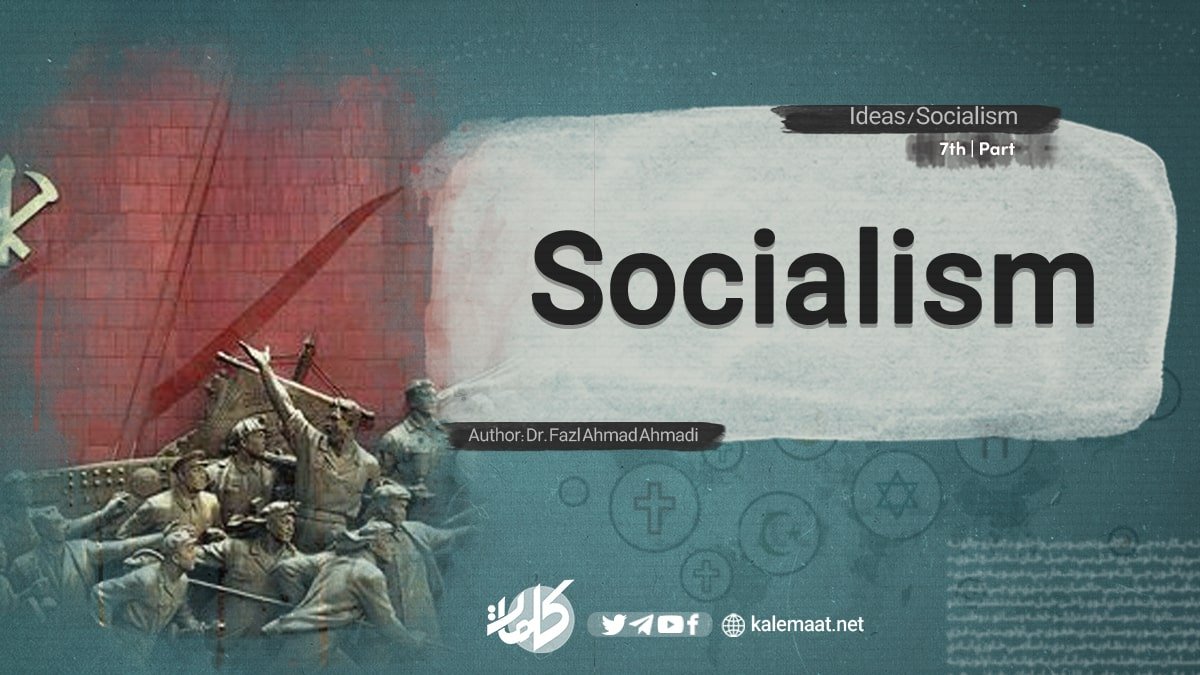Author: Dr. Fazl Ahmad Ahmadi
Socialism (7th and the last part)
State socialism:
Following the Bolshevik Revolution (1917), the Soviet Union became the first society that openly accepted the socialist model of economic organization and this model was not fully formed until the so-called “second revolution” of Stalin, and during this time, the aspects of the market organization was still based on “Lenin’s New Economic Policy” which was formulated in the 1920s; Therefore, the model that was exported to Eastern Europe after the Second World War and was dominated by orthodox communism can be called economic Stalinism, and this system was based on the collectivization of the government and all economic resources under the control and supervision of the party apparatus.
Market socialism
To replace the highly centralized economic model of the Soviet Union, efforts have been made to adapt the principles of socialism to the dynamics of competition market, and this model was put into practice in Yugoslavia in 1949 following the disagreement between Tito, the president of Yugoslavia, and Stalin. The same model was applied in Hungary after the Soviet Union suppressed the political rebellion in 1956.
The appeal of market socialism is that it seems to compensate for many of the most serious deficiencies of central planning, the market environment not only ensuring efficiency and responsiveness to the consumer; It also prevents the dangers of bureaucratic power; But this does not mean that the socialist market is completely unplanned and unregulated or without control; Rather, there are specific rules and regulations in this field that are widely used.
Conclusion
In the end, a few points can be mentioned as a summary of the topic:
First: that the term socialism (believed society) is derived from the French word “sosial” meaning social, and the most important common element of socialist theories is to rely on the supremacy of society and to give authenticity to the public benefit over the individual and individual benefit.
Second: Historically, the concept of socialism goes back centuries and even to the works of Plato; But this doctrine was used in a precise way in recent centuries, and it is considered one of the contemporary ideas in the field of political beliefs.
Third: With the advent of the reformist tradition of socialism, which advocated the gradual integration of the working classes into the capitalist society through the improvement of working conditions and wages and the growth of labor unions and labor political parties, this branch of socialism declared a peaceful enabler, step by step and legal socialism by accepting the “parliamentary way” and today this basic branch of “socialism” is considered as a representative of the modernity of socialism.
Fourth: that socialism has several basic elements that are complete with the gathering of these elements of the doctrine of socialism, and these elements, which are more related to society arrange a special order and include community, social equality, brotherhood, social class, need, Shared ownership.
Finally, although the collection of socialist works is full of economic models; But the most influential of these models have been raised in the framework of Marxist ideas, and what is present in all of them is the belief that some form of economic planning should and can replace the market mechanism, however, state socialism and market socialism are the main examples of socialism.
Sources and references
1. Asadi and Aghamohammadi, Majid and Dawood, 1401. “A comparative study of the military thought of socialism and fascism (from the perspective of thinkers of the two schools)”, Strategic Defense Studies Quarterly, 21st year, number 92, summer 1402, pages 117 to 138.
2. Bashiriyeh, Hossein. 2013. Teaching political knowledge; Fundamentals of theoretical and institutional political science, 10th edition, Tehran-Iran, Negah Moaser Publications.
3. Draper, Hall, 2020, Two Definitions of Socialism, translated by: Vahid Valizadeh, Azad Publications.
4. Duvorjeh, Morris, 2009. Principles of political science, translated by Abulfazl Qazi, 9th edition, Tehran-Iran, Amir Kabir Publications.
5. Shirzadi and others, Reza, Shahreh Shahriari and Hossein Ali Nowzari, 2019. “State and society in the political philosophy of Karl Marx”, Iranian Political Sociology Quarterly, third year, second number, summer 2019, pages 1237 to 1259.
6. Salahi, Malek Yahya, 1390, Western political ideas in the 20th century, fifth edition, Tehran-Iran, Qoms Publishing.
7. Qadri, Hatem, 2019, Political thoughts in the 20th century, 12th edition, Tehran-Iran, Samt Publications.
8. Lekoff, Sanford E., 2005, “Socialism”, the book of the Culture of Political Thoughts, translated by: Khashayar Dehimi, first edition, Tehran-Iran, Nei Publishing.
9. Maleki, Khalil, 1357, History of Socialism, second edition, Tehran-Iran, Rowaq Publications, in collaboration with the Movement Publications.
10. Melliband, Ralph, 1380 “Socialism in the Age of Doubt”, pages 77 to 101, in the book “The Future of Socialism” (Collection of Articles), translated by Nasser Zarafshan, first edition, Tehran-Iran, Age Publishing House.
11. Weber, Max, 2013. Socialism, translated by: Hossam Hosseinzadeh, first edition, Tehran-Iran, Ketab Farda Publishing House.
12. Heywood, Andrew, 2009. Politics, translated by: Abdur Rahman Alam, second edition, Tehran-Iran, Ney Publishing.



